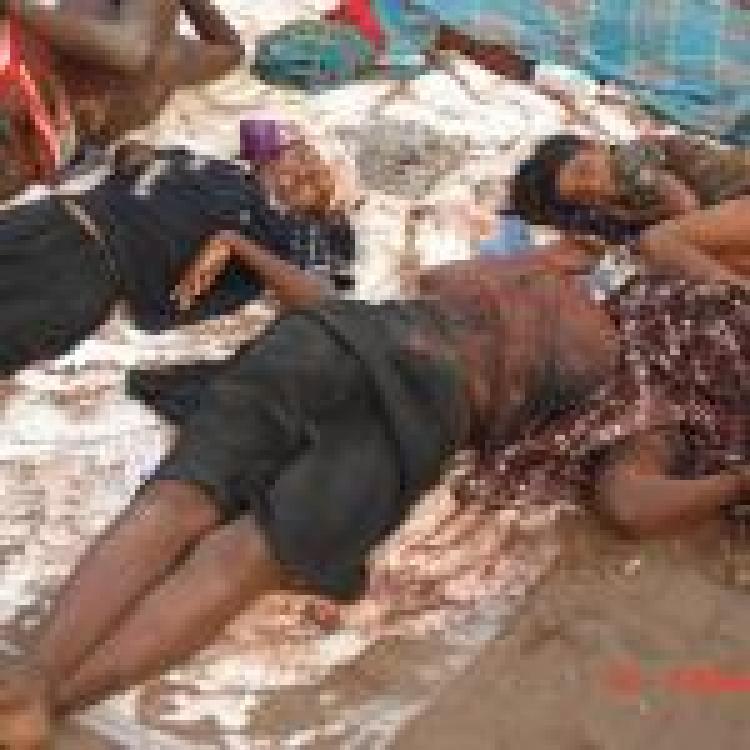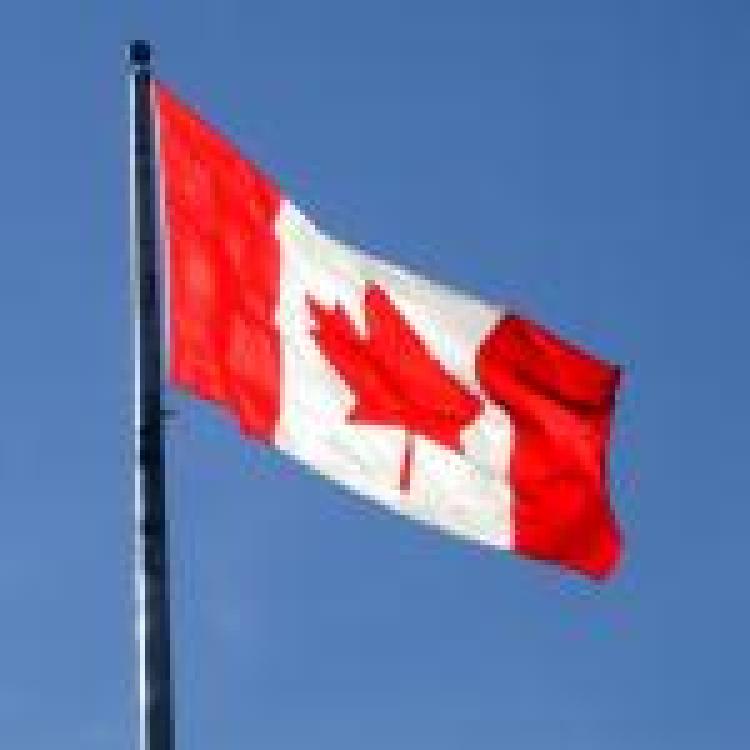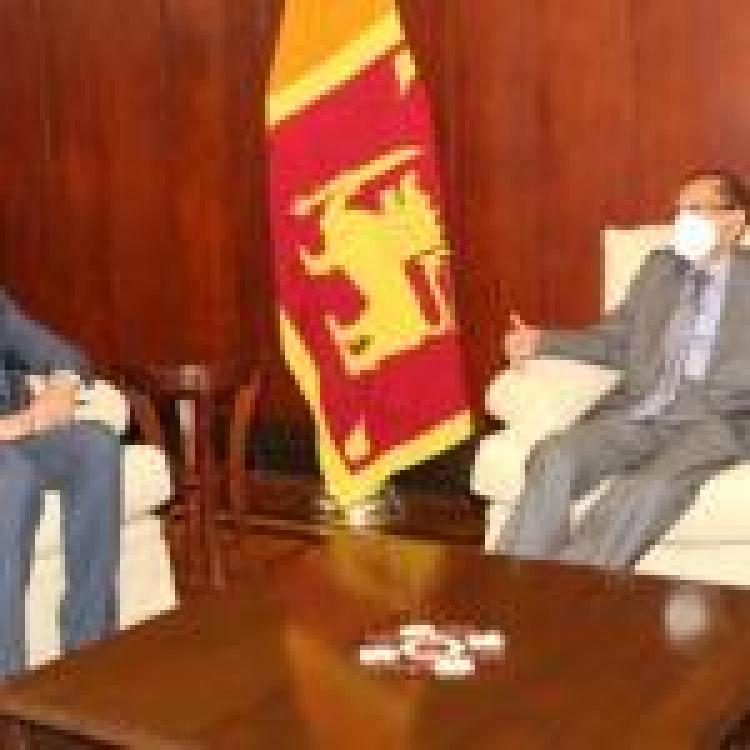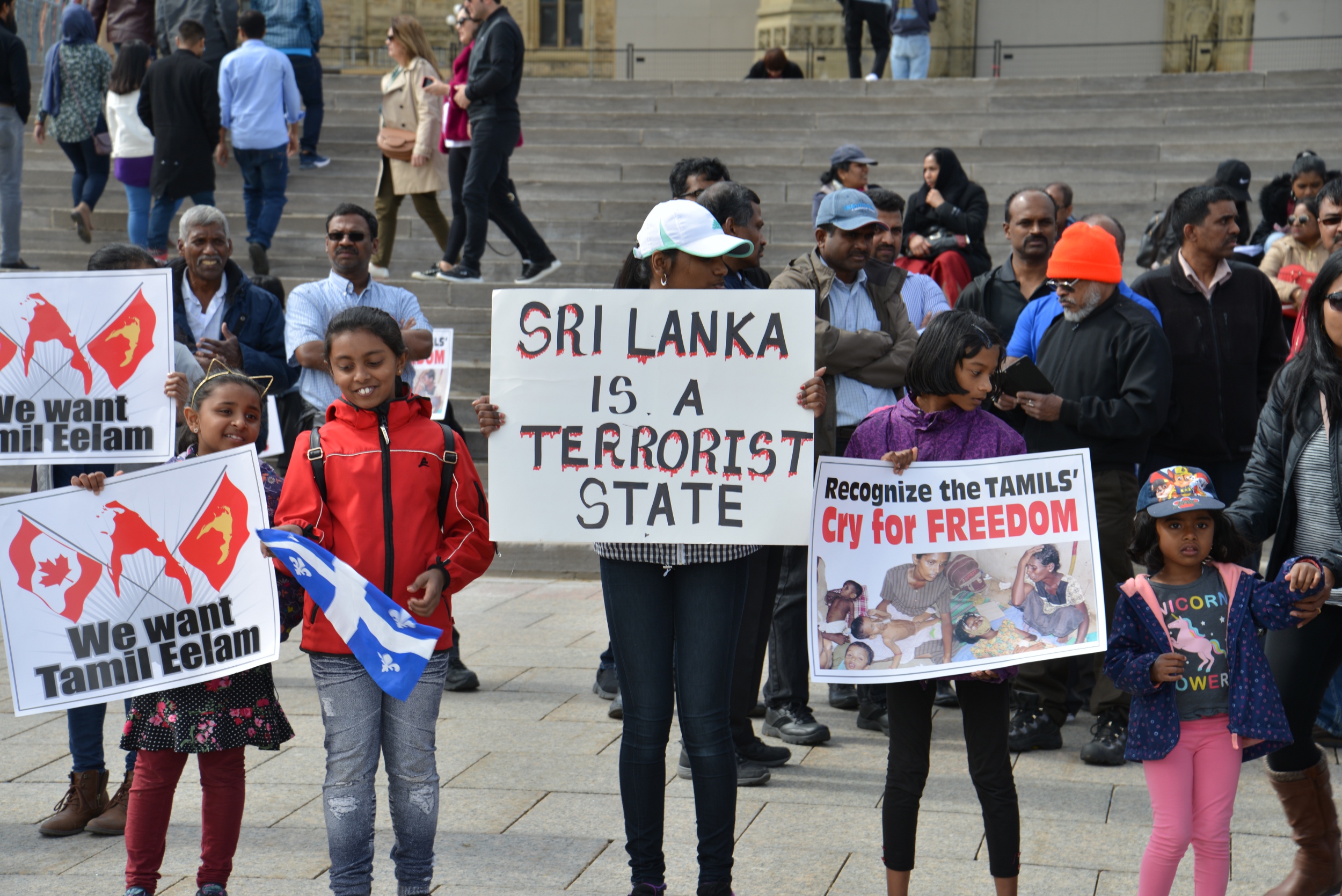
Tamil Canadians demonstrate on the 10th anniversary of the Mullivaikkal genocide in Ottawa, 2019.
A court in Canada has upheld the Tamil Genocide Education Week Act, which recognises the genocide against Tamils in Sri Lanka and aims to spread awareness about the atrocities, as a constitutional challenge by several Sinhalese groups was dismissed.
In a judgement at the Ontario Superior Court of Justice, Justice Akbarali likened to bill to provincial legislation that recognizes and commemorates the Holocaust as she dismissed the Sinhalese challenge.
“Ontario is permitted to recognize a Tamil genocide for purposes of legislating with respect to educational initiatives related to it, or indeed, for commemorating it,” she wrote. “This is no different than provincial legislation that recognizes and commemorates the Holocaust, or provincial education policy focusing on international aspects of world wars or any other international conflict.”
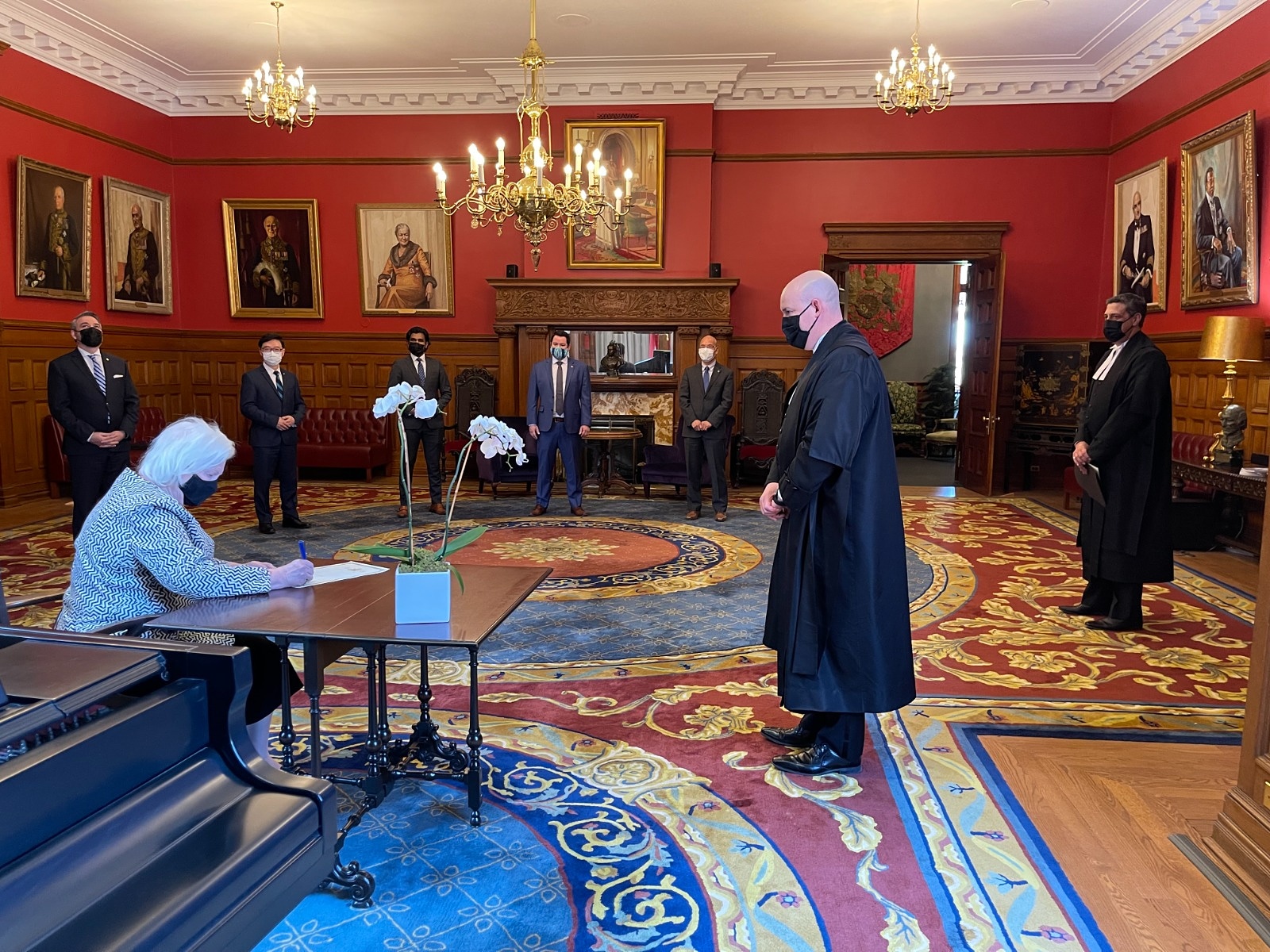
The Tamil Genocide Education BIll being signed last year.
Ontario unanimously passed the Tamil Genocide Education Week Act, also known as Bill 104 last year, recognising the genocide against Tamils in Sri Lanka and establishing May 11 to 18 as a week in which Ontarians “are encouraged to educate themselves about, and to maintain their awareness of, the Tamil genocide and other genocides that have occurred in world history.”
May 18th 2009 marked the end of a genocidal campaign conducted by the Sri Lankan forces which saw tens of thousands of Tamil civilians killed, hospital repeatedly shelled, summary executions, and rampant sexual violence.
However, the bill ignited several angry responses from Sinhalese groups and the Sri Lankan government, with two separate Canadian groups, arguing the bill is "unconstitutional" and violates the Charter of Rights and Freedoms.
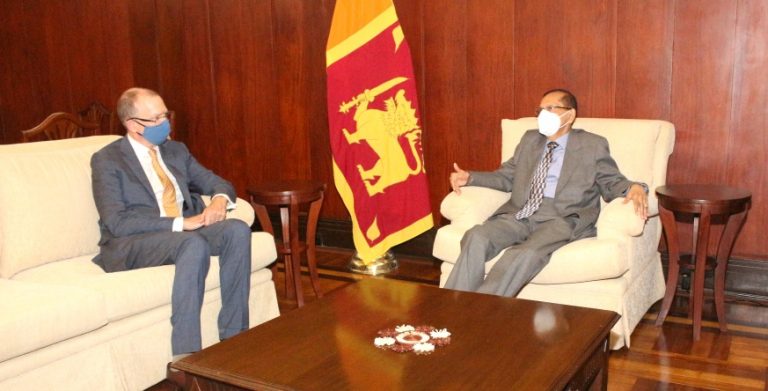
Sri Lankan Foreign Minister G.L. Peiris in talks with Canadian High Commissioner David McKinnon last year expressed Colombo’s “strong concern” regarding Ontario’s Tamil Genocide Education Week Bill.
Justice Akbarali, however, ruled this was not the case. In her judgement she went on to state,
“In my view, the evidence I have reviewed demonstrates that the recognition of a Tamil genocide is in service of
(i) educating the public about the Tamil genocide, and about other genocides, including the need to prevent such atrocities from occurring in the future;
(ii) through education, allowing non-Tamil Ontarians the opportunity to better understand their Tamil neighbours, and Tamil youth to better understand their families, community and history; and
(iii) through education, helping to create the conditions for Tamil Ontarians to share their stories and begin to heal from the trauma and inter-generational trauma that the Legislature has recognized.”
“I thus conclude that the dominant characteristic of the law is to educate the public about what the Ontario Legislature has concluded is a Tamil genocide,” she added.
“The perpetrator of the genocide recognized by the Legislature is described in the TGEWA to be the Sri Lankan government,” Justic Albarali added, dismissing complaints by Sinhalese groups they may be discriminated against.
“A claim or a finding of genocide perpetrated by a government or a state does not tar individuals who may be members of the same nationality, ethnicity, or religious affiliation as those people who dominate the government or state in question,” she continued. “As but one example, the Righteous Among the Nations recognized by Yad Vashem includes Germans.”
Read the full text of the judgement here.
The ruling from the court comes just weeks after a motion was passed in Canada’s parliament recognising May 18 as Tamil Genocide Remembrance Day, in a landmark move making it the first parliament in the world to recognise the Tamil genocide.
The motion states that "this House acknowledges the Genocide of Tamils in Sri Lanka, and recognizes May 18th of each year as Tamil Genocide Remembrance Day".
Read more in our feature: Canada's Parliament recognises Tamil Genocide in landmark motion




